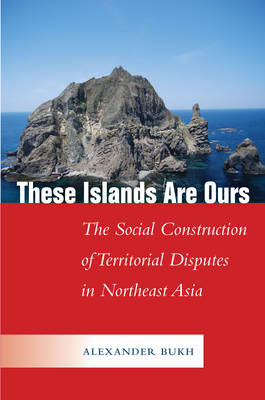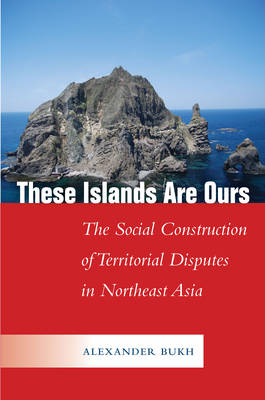
- Retrait gratuit dans votre magasin Club
- 7.000.000 titres dans notre catalogue
- Payer en toute sécurité
- Toujours un magasin près de chez vous
- Retrait gratuit dans votre magasin Club
- 7.000.0000 titres dans notre catalogue
- Payer en toute sécurité
- Toujours un magasin près de chez vous
These Islands Are Ours
The Social Construction of Territorial Disputes in Northeast Asia
Alexander BukhDescription
Territorial disputes are one of the main sources of tension in Northeast Asia. Escalation in such conflicts often stems from a widely shared public perception that the territory in question is of the utmost importance to the nation. While that's frequently not true in economic, military, or political terms, citizens' groups and other domestic actors throughout the region have mounted sustained campaigns to protect or recover disputed islands. Quite often, these campaigns have wide-ranging domestic and international consequences.
Why and how do territorial disputes that at one point mattered little, become salient? Focusing on non-state actors rather than political elites, Alexander Bukh explains how and why apparently inconsequential territories become central to national discourse in Japan, South Korea, and Taiwan. These Islands Are Ours challenges the conventional wisdom that disputes-related campaigns originate in the desire to protect national territory and traces their roots to times of crisis in the respective societies. This book gives us a new way to understand the nature of territorial disputes and how they inform national identities by exploring the processes of their social construction, and amplification.
Spécifications
Parties prenantes
- Auteur(s) :
- Editeur:
Contenu
- Nombre de pages :
- 232
- Langue:
- Anglais
- Collection :
Caractéristiques
- EAN:
- 9781503611894
- Date de parution :
- 10-03-20
- Format:
- Livre relié
- Format numérique:
- Genaaid
- Dimensions :
- 152 mm x 231 mm
- Poids :
- 498 g

Les avis
Nous publions uniquement les avis qui respectent les conditions requises. Consultez nos conditions pour les avis.






